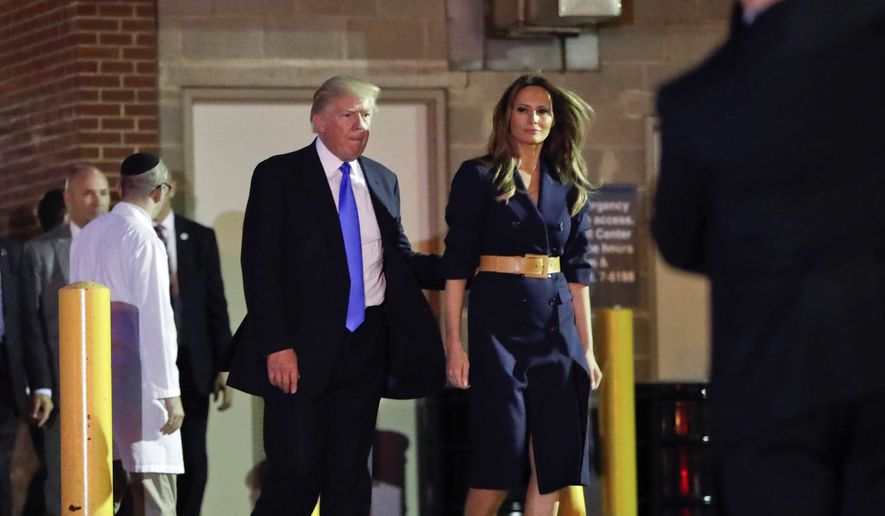President Trump is expected to announce a rollback of his predecessor’s detente with Cuba during a visit Friday to Miami, likely to include a reimposition of U.S. travel restrictions to the communist island as well as a limiting of business interactions between American companies and entities controlled by the Cuban military.
The changes are expected to be in line with those sought by Cuba hard-liners on Capitol Hill, including Sen. Marco Rubio, an influential Florida Republican on the Senate intelligence committee whom Mr. Trump seeks to gain as an ally.
Administration officials declined to comment on whether Friday’s speech will be a culmination of a monthslong review of Cuba policy, which has been a subject of speculation since Mr. Trump’s advisers signaled in November that he would undo Mr. Obama’s detente unless the Cuban government moved swiftly to address human rights abuses and loosen restrictions on freedom of speech.
Secretary of State Rex W. Tillerson told the Senate Foreign Relations Committee this week that “Cuba has failed” to do that, and suggested impending policy changes will focus on restricting relationships between U.S. and Cuban businesses that “inadvertently or directly” support what “continues to be a very oppressive regime.”
Analysts say that could mean only minor adjustments to the openings put in place in 2014 by the Obama administration, which sought to thaw hostility that had persisted between Washington and Havana since the 1962 Cuban Missile Crisis.
But the uncertainty has prompted warnings from some regional experts and pushback from groups seeking a full lift of the decades-old trade embargo. “Any rollback in U.S.-Cuba engagement would adversely affect the many U.S. businesses who have invested capital in building avenues for transactions with the island,” says Jason Marczak at the Atlantic Council in Washington.
“Companies like Airbnb, Google and dozens more in the tech, tourism and agricultural industries have already invested millions,” Mr. Marczak said. “Their investments should not be jeopardized by outdated policies that have proven detrimental in the past.”
On Tuesday, 55 Cuban female entrepreneurs sent a letter to Mr. Trump’s daughter, Ivanka, seeking her support for U.S. travel and trade with Cuba, arguing such developments have empowered Cuban women and strengthened a nascent private sector.
“There are hundreds of thousands of Cuban women working in the private sector,” the group wrote, according to a press release circulated by the Engage Cuba coalition, a U.S.-based group pushing to lift remaining elements of the embargo. “A setback in the relationship would bring with it the fall of many of our businesses and with this, the suffering of all those families that depend on them.”
Michael Shifter, who heads the InterAmerican Dialogue in Washington, said a serious limiting of U.S. travel and business will not only undermine the growth of capitalist activity on the island, it “will strengthen Cuban government hard-liners at a time when Cuba desperately needs help and reforms.”
“The hard-liners will tell the Cuban people, ‘We told you we shouldn’t trust the Americans. We tried to work with them, and this is what we get,’” Mr. Shifter said. “Trump is going to invoke human rights as his motivation for any changes to the policy,” he said. “This is ironic because human rights have so far not been a hallmark of his administration in other parts of the world, such as Turkey, Egypt, the Philippines and Russia.”
Mr. Trump also has a clear domestic political reason for restoring bare-knuckle pressure on Havana, Mr. Shifter added. The president, he said, wants to appease a clutch of Cuban-American Republican lawmakers, who were outraged by Mr. Obama’s detente but are still mulling whether to back Mr. Trump at a moment when his new administration is under fire on several fronts.
Mr. Rubio is chief among them. He and the president went toe to toe in last year’s Republican primaries, during which Mr. Trump referred to the Florida senator as “Little Marco.” The two appeared recently to be trying to mend fences, a development that could help Mr. Trump as the Senate intelligence committee continues to probe allegations of proximity between his 2016 campaign and Russia.
Mr. Rubio was among a handful of Republicans who had dinner at the White House last week, just days before he was seen to defend Mr. Trump during a committee hearing in which former FBI director James B. Comey insinuated that the president had engaged in an obstruction of justice by firing him over the bureau’s own Russia investigation.
“Rubio is on the intel committee; he was a presidential candidate. If Trump delivers and rolls back Obama policy on Cuba, I think Rubio is going to defend him no matter what happens,” Mr. Shifter said. “And when you’re in some trouble, like I think Trump is, and it’s being investigated, it’s good to have friends in the Senate like Marco Rubio.”
• Guy Taylor can be reached at gtaylor@washingtontimes.com.




Please read our comment policy before commenting.